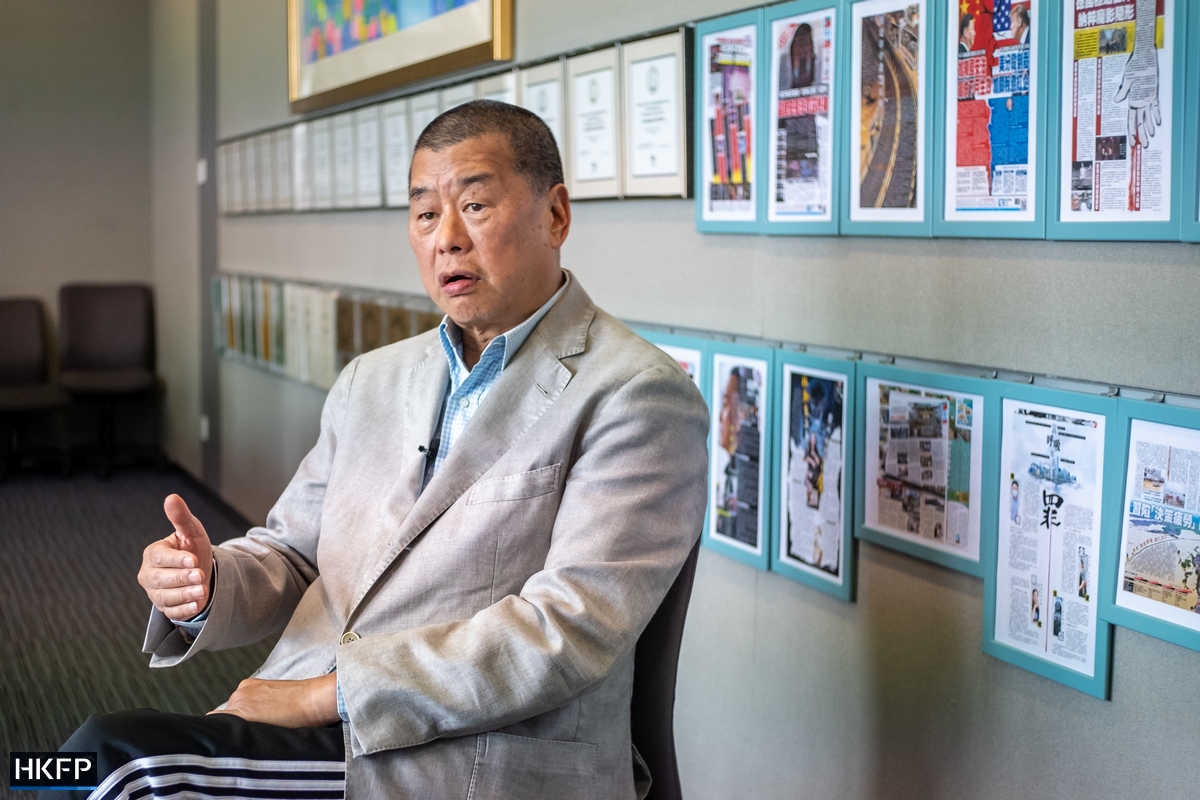The Hong Kong government has condemned a joint statement by four ex-consuls general in Hong Kong, which expressed “dismay and concern” over a fellow former diplomat being named as a “co-conspirator” in the landmark national security trial of media mogul Jimmy Lai.

The open letter signed by Richard Boucher, Stephen Young, Richard Mueller and James Keith published in The Wall Street Journal on Wednesday amounted to “interference” and contained a “slanderous statement,” the Hong Kong government said in a statement issued on Thursday evening.
Titled “U.S. Consuls General Stand With Jimmy Lai,” the letter said Hong Kong authorities had “slandered” former consul general James Cunningham by accusing him of being a “co-conspirator” in the national security case against the pro-democracy media tycoon.
The founder of the now-defunct Apple Daily is undergoing a 80-day trial for allegedly conspiring to collude with foreign forces under the Beijing-enacted security legislation. He also stands accused of conspiring to publish “seditious” materials.
The 76-year-old, who is currently serving five years and nine months behind bars for a separate fraud conviction, could face up to life in prison if convicted in the landmark case.
Last month, ex-Apple Daily publisher Cheung Kim-hung, who was also charged under the national security law, testified against his former boss. He told the court that Lai had forwarded to him a message from Cunningham, who also advised Apple Daily to highlight its coverage of a meeting between then-US vice-president Mike Pence and Hong Kong’s former chief secretary Anson Chan .
The former diplomats said they valued Beijing’s promises of One Country, Two Systems and had openly supported the Sino-British Joint Declaration and the Basic Law. But seeing a leading journalist being tried for what they saw as normal journalistic practice “sullies the reputation and brilliance that Hong Kong once enjoyed,” the letter read.
“It is thus with great dismay and concern that we read about the trial of Mr. Lai and how one respected and highly experienced former consul general, Amb. James Cunningham, has been slandered as a “co-conspirator,” they wrote, adding Lai should be “set free.”
In the late hours on Thursday, the Hong Kong government said any attempt to interfere with the city’s judicial proceedings by means of political power, media or any other means resulting in a defendant not having a fair trial was a “reprehensible act undermining the rule of law of Hong Kong.”
Making a statement with the intent to obstruct the course of justice would likely constitute the offence of contempt of court, the Hong Kong authorities warned.
“The suggestion that certain individuals or groups should be immune from legal consequences for their illegal acts is no different from advocating a special pass to break the law, and this totally runs contrary to the spirit of the rule of law,” the statement read.
Comments on trial
The Hong Kong government and the city’s Judiciary have strongly condemned statements opposing the prosecution of Lai and those calling for the release of the pro-democracy media tycoon. Those remarks have often been labelled as slander and attempts to interfere with the city’s legal proceedings.

Chinese authorities have also repeatedly commented on Lai’s case. Last December, Foreign Ministry Spokesperson Mao Ning described the Apple Daily founder as “one of the most notorious anti-China elements,” saying he was a “mastermind” behind the 2019 citywide protests.
“He blatantly colluded with external forces to undermine China’s national security and is responsible for numerous egregious acts,” Mao said without citing evidence.
Beijing inserted national security legislation directly into Hong Kong’s mini-constitution in June 2020 following a year of pro-democracy protests and unrest. It criminalised subversion, secession, collusion with foreign forces and terrorist acts – broadly defined to include disruption to transport and other infrastructure. The move gave police sweeping new powers and led to hundreds of arrests amid new legal precedents, while dozens of civil society groups disappeared. The authorities say it restored stability and peace to the city, rejecting criticism from trade partners, the UN and NGOs.
Support HKFP | Policies & Ethics | Error/typo? | Contact Us | Newsletter | Transparency & Annual Report | Apps
Help safeguard press freedom & keep HKFP free for all readers by supporting our team























